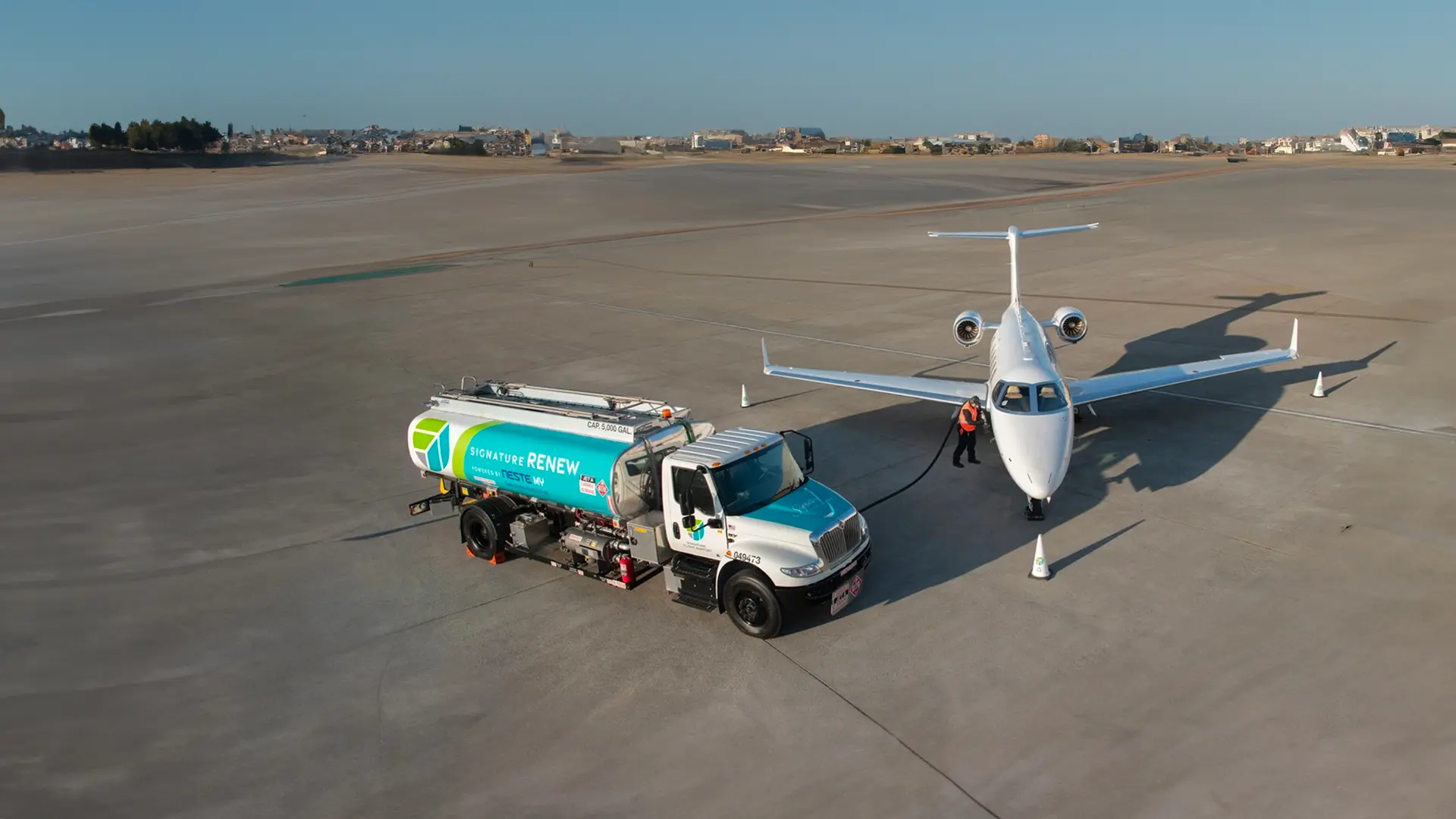SUSTAINABILITY

Path to 2050: Net-Zero
Building a Greener Future in Aviation
The global business aviation community is committed to achieving net-zero carbon emissions by 2050. Key targets include a 2% annual increase in fuel efficiency, carbon-neutral growth, and a 50% reduction in carbon emissions by 2050 compared to 2005 levels. To reach these goals, the industry focuses on modern technology, sustainable aviation fuels (SAF), operational improvements, and market-based measures. Innovations such as lightweight materials, sustainable propulsion systems, and Autonomous Air Mobility (AAM) are essential, along with SAF, which can reduce emissions by up to 80%. Operational efficiencies and financial instruments also play a crucial role.
For reference, business aviation accounts for only 1 to 2% of the total global CO₂ emissions from aviation, which itself represents no more than 2 to 3% of the total global CO₂ emissions. Thus, although representing only 0.04% of global emissions, the efforts of business aviation are crucial in the fight against climate change.
Sustainable Aviation Fuel (SAF)
Reducing Our Carbon Footprint
One of the key components of our sustainability strategy is the use of Sustainable Aviation Fuel (SAF). SAF significantly reduces carbon emissions compared to traditional jet fuel, as it is produced from renewable resources like waste oils and agricultural residues. By integrating SAF into our operations, we are able to decrease our environmental impact and support the development of renewable energy sources. Astonjet is proud to be at the forefront of the transition to greener aviation fuels, demonstrating our commitment to a more sustainable future.


Ecosystem Regeneration
Planting Trees for a Sustainable Future
As part of our sustainability efforts, Astonjet has partnered with multiple foundations to support global reforestation projects. Through these collaborations, we contribute to the planting of thousands of trees each year, which helps absorb CO₂ , restore biodiversity, and support local communities. These partnerships allow us to directly offset our environmental impact and make a tangible difference in the fight against climate change.

Community & Corporate Responsibility
Making a Positive Impact Beyond Aviation
At Astonjet, our commitment to sustainability extends beyond environmental considerations to include social and corporate responsibility. We support local communities through various initiatives, such as educational programs, charitable partnerships, and employee volunteer efforts. By fostering a culture of responsibility and giving back, we aim to make a positive impact on society and contribute to the well-being of the communities we serve.
